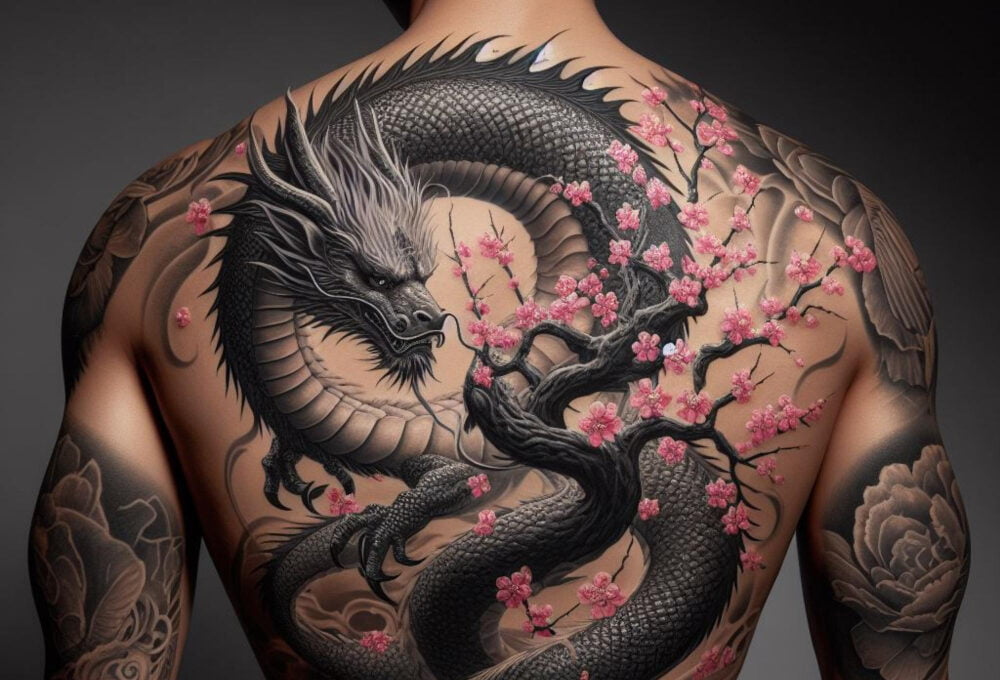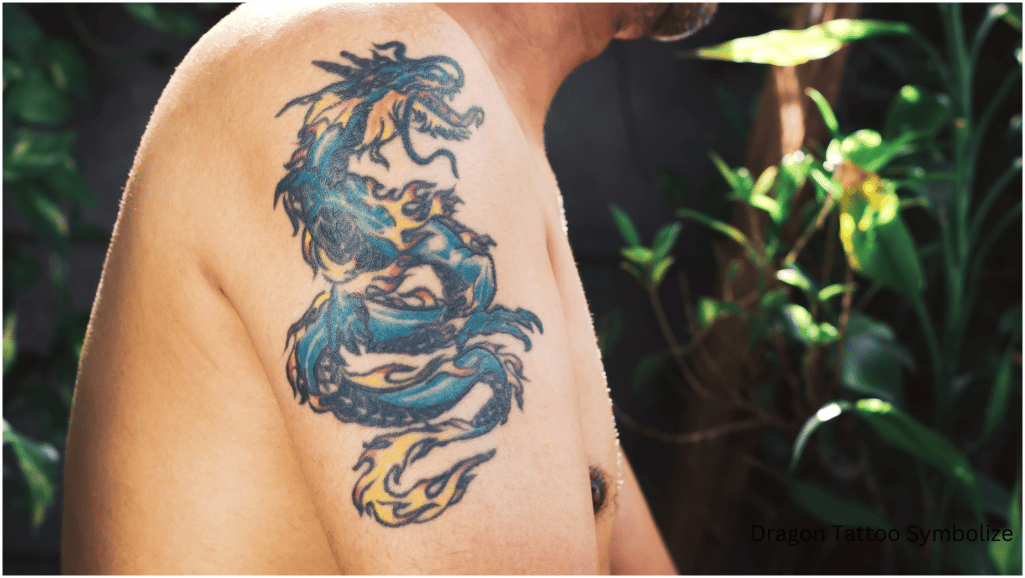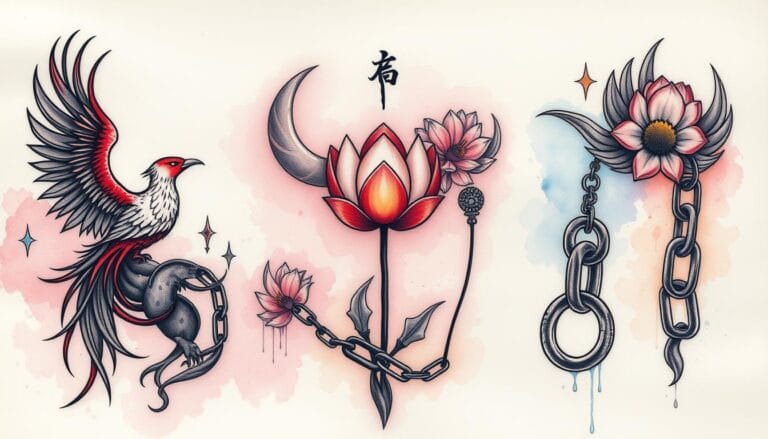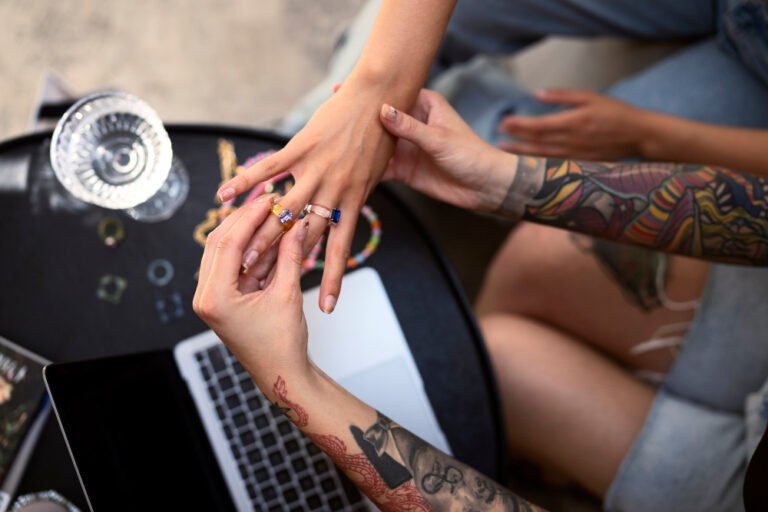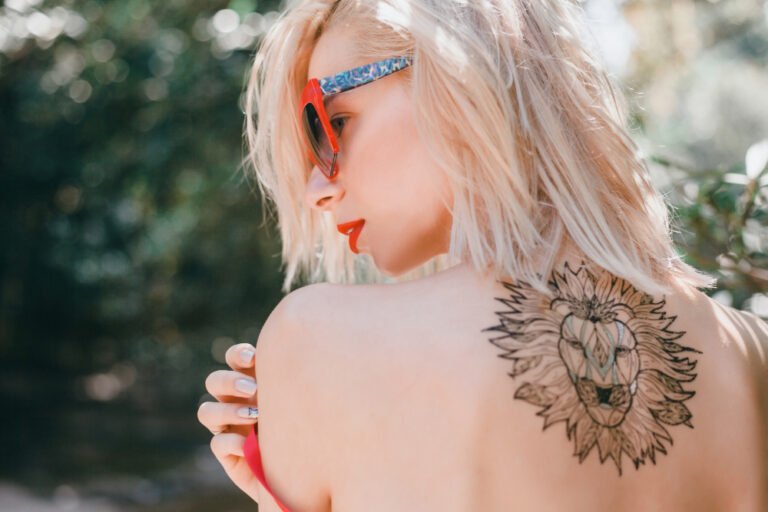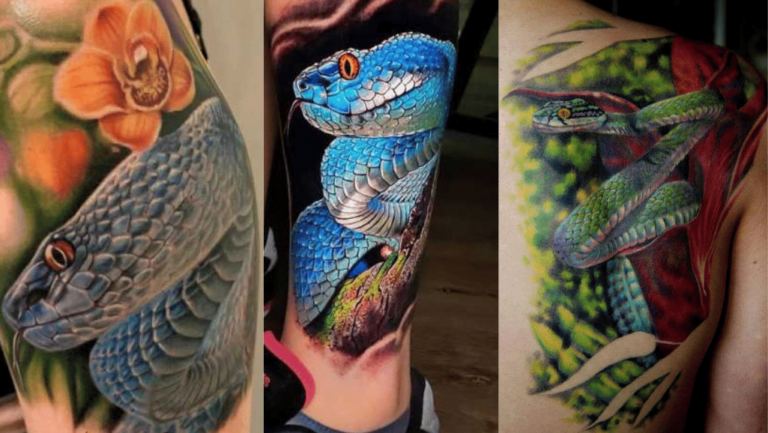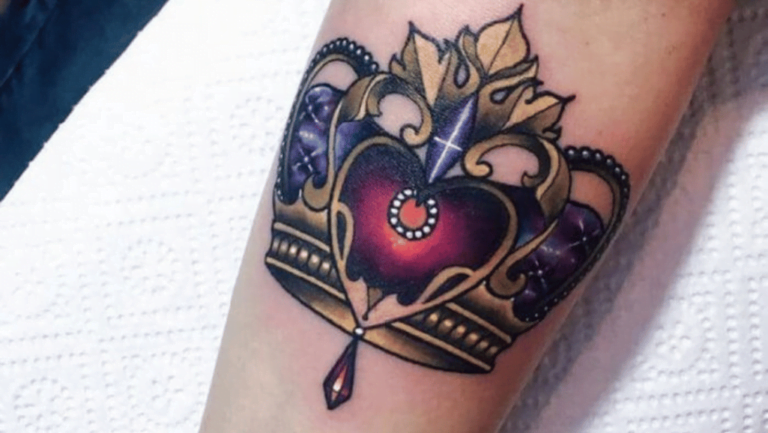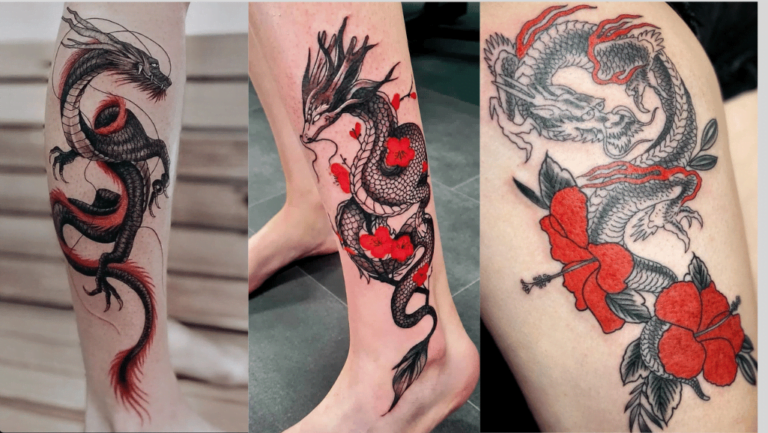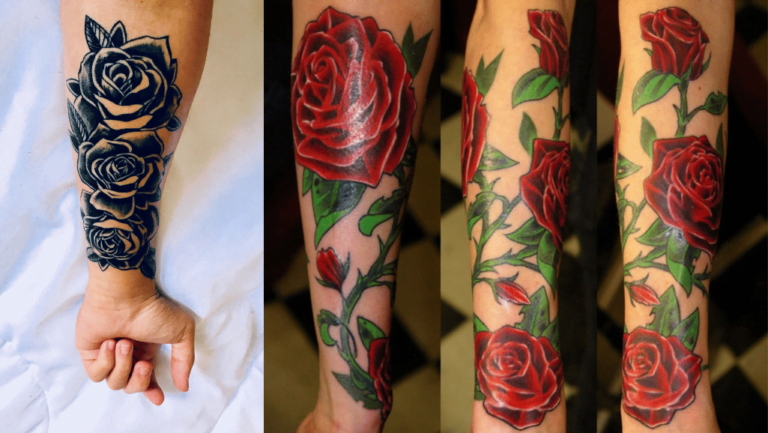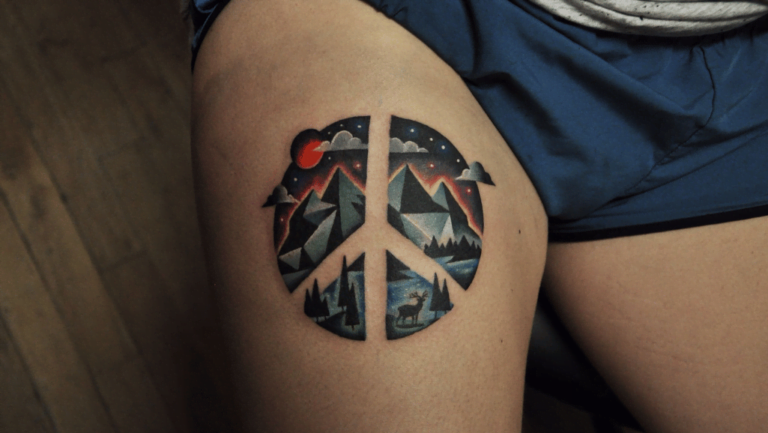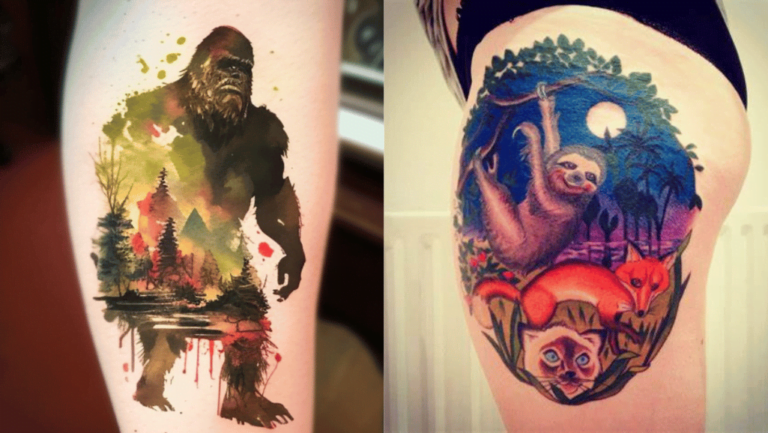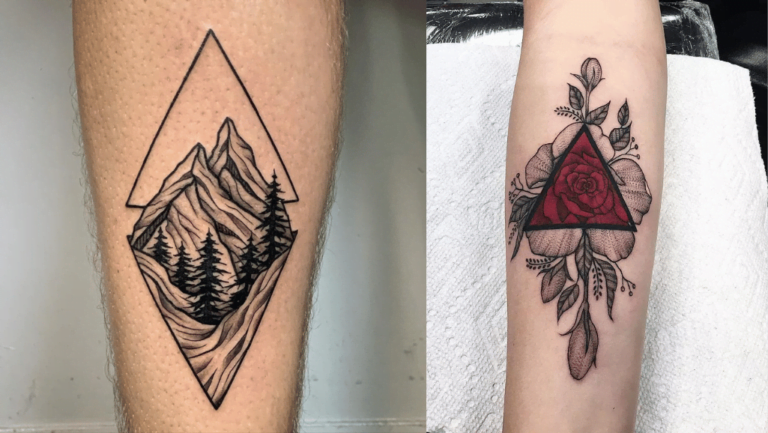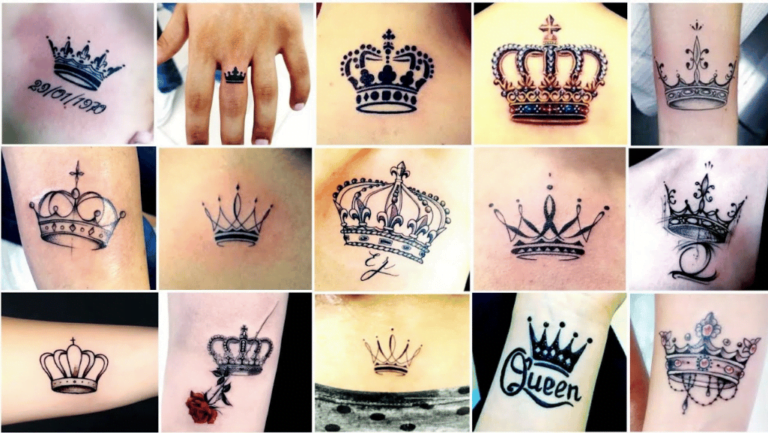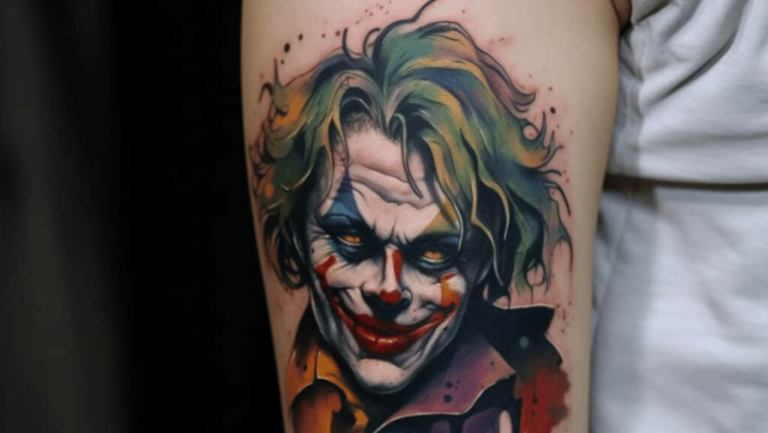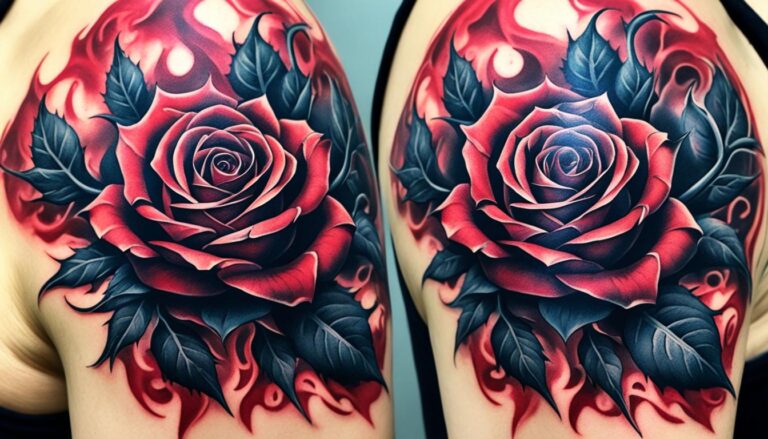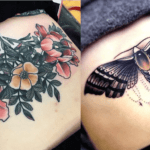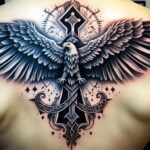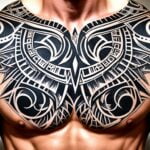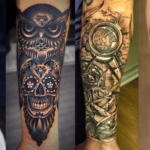Dragons have long captivated the human imagination with their mythical allure. These powerful creatures are not only the stuff of ancient legends but also hold deep symbolism and significance in various cultures. If you’re considering getting a dragon tattoo, understanding its meaning can help you choose a design that resonates with you on a personal level.
Key Takeaways:
- What does a Dragon Tattoo Symbolize Meaning power, wisdom, and rebirth.
- The Japanese dragon tattoo represents protection, happiness, and good luck.
- The Vietnamese dragon tattoo embodies strength and resilience.
- The Celtic dragon tattoo signifies the cycle of life.
- The Eastern dragon tattoo holds cultural significance in East Asia.
Japanese Dragon Tattoo Meaning
When it comes to Japanese dragon tattoos, they hold deep cultural significance and convey a positive symbolism. These tattoos are believed to offer protection and act as guardians for families and homes. In Japanese culture, the dragon is associated with spreading happiness, freedom, and good luck. Its presence is believed to bring fortune and prosperity to those who embrace its power.
The portrayal of the Japanese dragon in water adds a distinct element to the design. Water is often represented in the form of waves or splashes, emphasizing the dragon’s connection with natural forces and the continuous flow of life. This blending of the dragon and water creates a captivating visual representation that enhances the overall meaning and aesthetic appeal of the tattoo.
Japanese dragon tattoos are not only visually striking but also carry a sense of cultural heritage and spirituality. They serve as powerful symbols that resonate with individuals seeking a deeper connection to the rich traditions and beliefs of Japan.
| Symbolism | Cultural Significance |
|---|---|
| Protection and guardianship | Believed to protect families and homes |
| Spread of happiness and good luck | Associated with positive energies and fortune |
| Connection with water | Portrayed in water to symbolize natural forces and continuous flow |
Embrace the power and beauty of the Japanese dragon tattoo as you bring protection, happiness, and luck into your life. Let the symbolism and cultural significance of this majestic creature inspire you in your quest for a meaningful and visually captivating tattoo.
Vietnamese Dragon Tattoo Meaning
The Vietnamese dragon tattoo holds a significant place in Vietnamese culture, representing power, nobility, and strength. The dragon is considered a revered creature, embodying the qualities of leadership and resilience.
The design of a Vietnamese dragon tattoo often features an elegant and serpentine “S” shape, intricately adorned with vibrant colors and intricate details. This symbolizes the dragon’s fluidity and ability to adapt in any situation. The dragon is commonly depicted surrounded by thunder and lightning, representing its immense power and authority.
The Vietnamese dragon’s interpretation as a tattoo represents a manifestation of strength and resilience. It serves as a reminder to embrace one’s inner power, overcome challenges, and persevere in the face of adversity. It symbolizes the wearer’s determination to rise above obstacles and achieve greatness.
“The Vietnamese dragon tattoo is a sacred symbol that not only embodies power but also signifies protection and auspiciousness.”
The Vietnamese dragon tattoo is popular among individuals seeking a tattoo design that embodies both physical and spiritual strength. The intricate detailing and vibrant colors make it a visually striking choice for those who wish to express their boldness and courage through body art.
Symbolism of the Vietnamese Dragon Tattoo
The Vietnamese dragon tattoo represents several essential qualities:
- Power: The dragon’s immense power is depicted through its association with thunder and lightning, symbolizing its dominance and authority.
- Nobility: The dragon’s noble nature symbolizes honor, dignity, and respect.
- Strength: The Vietnamese dragon embodies physical and mental strength, representing the wearer’s ability to overcome challenges and persevere.
- Resilience: The dragon’s ability to adapt and overcome obstacles serves as a reminder to stay determined and resilient in the face of adversity.
A Vietnamese dragon tattoo is not only a visual representation of these qualities but also a powerful reminder for the wearer to embrace their inner strengths and strive for personal development.
Celtic Dragon Tattoo Meaning
The Celtic dragon tattoo holds deep significance and symbolism in Celtic culture. Known for their bold and intricate designs, Celtic dragon tattoos often depict the dragon with dark knots and unattached lines, representing the eternal cycle of life with its ups and downs. These mesmerizing designs are not just visually striking but also carry a powerful message.
Celtic dragons have a rich historical background and can be traced back to ancient times. These mythical creatures were revered and appeared on armor, shields, and family flags. They were believed to bring protection and ward off evil spirits. The Celtic dragon tattoo, therefore, serves as a symbol of strength, purity, and courage.
“The Celtic dragon is a fascinating representation of the cycle of life. Its intricate design and intertwining patterns showcase the interconnectedness of all things, the constant ebb and flow of existence. It reminds us that life is a journey filled with challenges and triumphs, and that strength and perseverance are essential.”
– Celtic Tattoo Expert
Getting a Celtic dragon tattoo can serve as a reminder to embrace the journey of life, finding strength in the face of adversity and appreciating the beauty of growth and transformation. It is a powerful symbol of resilience and the ability to navigate through life’s ups and downs.
Characteristics of Celtic Dragon Tattoos
Celtic dragon tattoos are characterized by their intricate and elaborate designs. Here are some key features of Celtic dragon tattoo designs:
- Knotwork: The dragon’s body is often depicted using complex knotwork, which symbolizes the interconnectedness of all things.
- Unattached Lines: The dragon’s limbs and tail may appear as unattached lines, representing the infinite nature of life.
- Dark Colors: Celtic dragon tattoos often incorporate dark shades, such as black, to create a bold and striking visual impact.
| Symbolism | Meaning |
|---|---|
| Strength | The Celtic dragon represents strength and endurance, reminding the wearer to stay resilient in the face of challenges. |
| Wisdom | The dragon is associated with wisdom and knowledge, representing the pursuit of wisdom throughout life’s journey. |
| Protection | The Celtic dragon is believed to bring protection and ward off evil spirits, serving as a guardian for the wearer. |
| Connection | The intricate knotwork and unattached lines of the design symbolize the interconnectedness of all things, emphasizing the unity of life. |
Eastern Dragon Tattoo Meaning
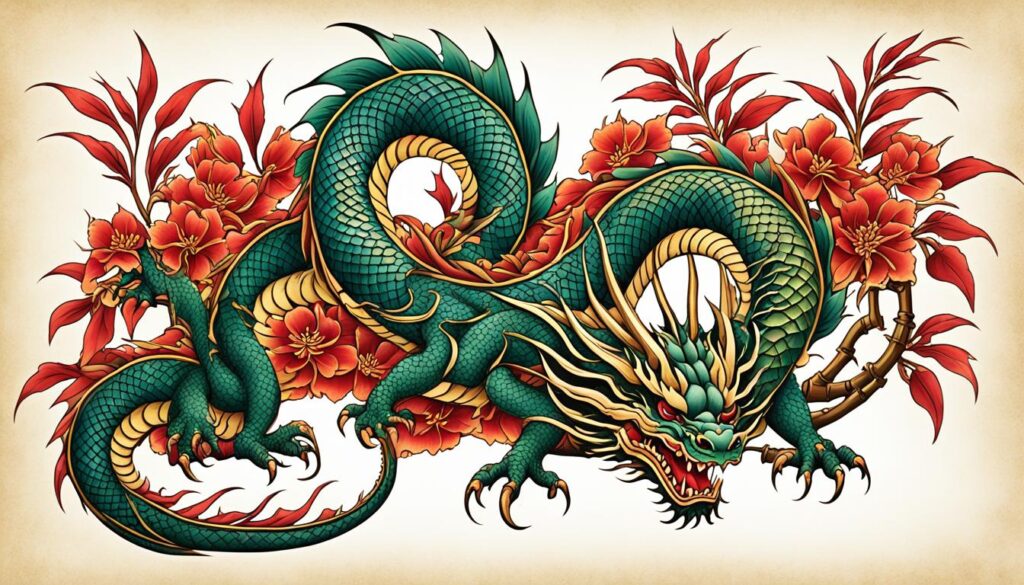
The Eastern dragon, also known as the oriental dragon, holds great cultural significance in East Asia. It is considered a sacred creature, often depicted as a hero protecting the heavens and bringing good fortune. The ancient style of Eastern dragon tattoos has been replicated for centuries.
| Symbolism | Significance |
|---|---|
| Power | The Eastern dragon symbolizes immense power, representing strength and authority. |
| Wisdom | It is believed that the Eastern dragon possesses great wisdom and intelligence. |
| Good Fortune | Dragon tattoos are associated with bringing good luck and fortune to those who wear them. |
| Protection | The Eastern dragon is revered for its role as a protector, guarding against evil spirits and bringing blessings. |
The intricate design of Eastern dragon tattoos often includes vibrant colors and detailed linework, creating a visually striking and captivating tattoo. These tattoos serve as a powerful symbol and a testament to the rich cultural heritage of East Asia.
The Influence of Eastern Dragon Tattoos on Contemporary Art
The symbolism and artistic beauty of Eastern dragon tattoos have inspired many contemporary artists. From elaborate paintings to intricate sculptures, the image of the Eastern dragon continues to resonate with both Eastern and Western audiences. Its representation in various art forms further emphasizes the cultural impact and enduring fascination with these mythical creatures.
Dragons in Different Cultures
Dragons hold great significance and symbolism in various cultures around the world, including China, Japan, Korea, and India. Each culture has its own unique interpretation of dragon tattoos, adding depth and meaning to these mystical creatures.
Chinese Dragons
In Chinese culture, dragons are revered as powerful and mystical beings. They symbolize strength, wisdom, power, wealth, and longevity. Chinese dragons are often depicted with serpentine bodies, sharp claws, and horns. They are associated with the elements of water, earth, and air, and are believed to control the weather and bring good fortune. Dragon tattoos in Chinese culture are seen as symbols of protection, prosperity, and auspiciousness.
Japanese Dragons
Japanese dragons, known as “ryu,” hold a special place in Japanese folklore and mythology. They are often associated with water deities and natural forces. Japanese dragon tattoos symbolize protection, luck, and strength. These mythical creatures are depicted with long, serpentine bodies, clawed feet, and large, elaborate tails. The Japanese dragon is believed to bring good fortune and ward off evil spirits.
Korean Dragons
In Korean culture, dragons are seen as auspicious creatures that represent the sky, rivers, and lakes. They are believed to bring rain and promote fertility. Korean dragon tattoos are often designed with vibrant colors and intricate details. These tattoos symbolize power, strength, and protection. They are considered a source of inspiration and courage.
Dragons in India
In Indian mythology, dragons are known as “nagas.” They are serpentine creatures associated with the underworld and are believed to possess great wisdom, fertility, and power. Dragon tattoos in India are often intertwined with other mythological elements, such as flowers, skulls, or deities. They represent a harmonious balance between the earthly and spiritual realms.
Each culture’s interpretation of dragon tattoos brings a unique perspective and symbolism to these mythical creatures. Whether it’s the mystical aura and prosperity associated with Chinese dragons, or the protective and luck-bringing nature of Japanese dragons, dragon tattoos continue to hold immense significance and interpretation in various cultures around the world.
| Culture | Dragon Symbolism |
|---|---|
| Chinese | Power, wisdom, wealth, longevity |
| Japanese | Protection, luck, strength |
| Korean | Power, strength, protection |
| Indian | Wisdom, fertility, power |
Conclusion
Dragon tattoos hold deep meanings and cultural significance in various societies. They are symbolic of power, wisdom, and rebirth, resonating across different cultures around the world. The interpretation and design of a dragon tattoo can be influenced by a range of cultural perspectives, resulting in unique and customizable tattoo designs.
One example of cultural significance can be seen in Japanese dragon tattoos, where they are associated with positive symbolism and are believed to provide protection and happiness. In Western folklore, dragon tattoos evoke a mythical aura and are embraced for their visually striking appearance. Whether individuals are drawn to the positive symbolism in Japanese culture or the mythical allure in Western folklore, dragon tattoos continue to captivate and inspire people who seek meaningful and visually impactful body art.
Dragon tattoos are more than just ink on the skin; they are a representation of powerful traits and beliefs that span centuries. They exemplify strength, resilience, and a connection to ancient wisdom. With their rich history and diverse interpretations, dragon tattoos remain a timeless choice for individuals who aspire to express their inner strength and embrace the cultural significance behind these majestic creatures.
FAQ
What does a dragon tattoo symbolize?
What is the meaning of a dragon tattoo?
What is the significance of dragon tattoos in Japanese culture?
What is the meaning of Vietnamese dragon tattoos?
What does a Celtic dragon tattoo symbolize?
What is the meaning of Eastern dragon tattoos?
What is the cultural significance of dragon tattoos in different cultures?
What do dragon tattoos symbolize overall?
Forhad
Forhad's writing is not just about the artistry of tattoos or the latest trends in the industry; it's an exploration of the deep-rooted connections people have with their tattoos, reflecting personal narratives, cultural histories, and moments of transformation. Through a mix of in-depth features, personal narratives, and insightful analyses, he sheds light on the multifaceted nature of tattooing, revealing the emotional and cultural layers that lie beneath the surface.


